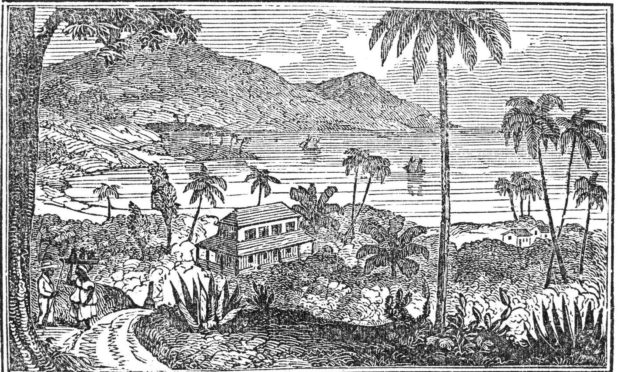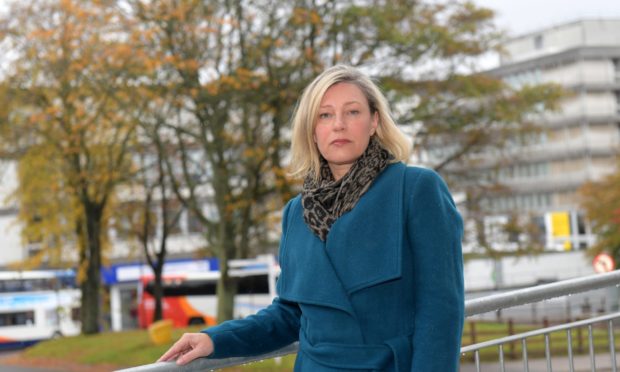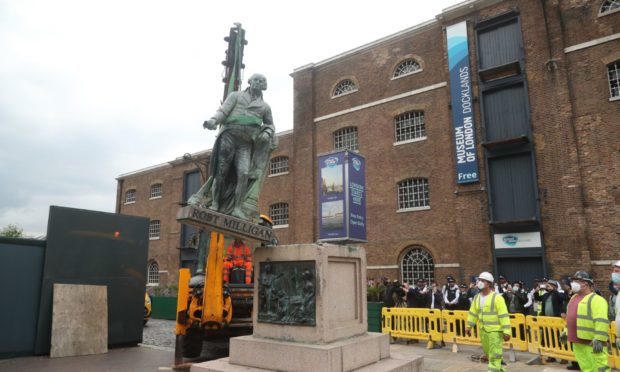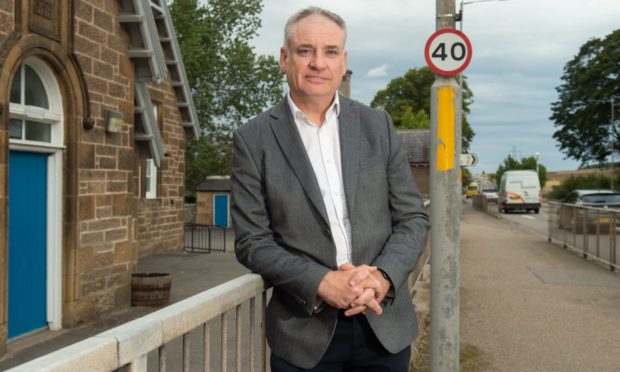A north-east education fund could be redirected to help heal the “scars” of slavery in Jamaica, after its historical links to the trade were exposed.
Local politicians demanded changes to the Dick Bequest following our exclusive revelations on Monday about its origins.
About £1.7 million is still sitting in the trust, which was established to support teacher training and the purchase of school equipment in Aberdeenshire and Moray following the death of Forres-born merchant James Dick in 1828.
However, historians David Alston and Donald Morrison have found that Mr Dick made his fortune as a slave trader in Jamaica.
And they have now won support for their call for the next Scottish Government to take a stand and order the return of the money to the Caribbean country.
Gillian Martin, who will seek re-election as the SNP’s Aberdeenshire East MSP this week, was among those expressing support for repatriation.
She said: “Maybe the best and most just thing to be done would be for this money to go to helping the education system in the country that still bears the scars of the slave trade from which Dick benefited.
“We need to accept that these injustices were perpetrated by our ancestors, and do the right thing where we can.”
Mr Dick had a business partnership with Robert Milligan, whose statue was removed last year by the Museum of London from its plinth in London’s Docklands, amid a wave of anger across the country about the UK’s enduring links to slavery.
The trustees of the bequest – which are elected by the Society of Writers to the Signet, the senate of Aberdeen University, and by Aberdeenshire and Moray councils – insisted they do not have the discretion to change the use of the money.
They say its purposes and procedures are directed by central government.
A change to the scheme was also backed by Richard Lochhead, who serves as minister for further and higher education, and will seek re-election as the SNP MSP for Moray this week.
“It is important that current generations understand the legacy of our colonial history and the fact that wealth was accumulated through exploitation of others, including on the back of slavery,” he said.
“At the very least, the focus of the fund that teachers are able to access could be on education around our colonial past and building modern-day links with the countries affected.
“Looking at how this fund could benefit those countries is key and something I’m sure the people of Moray would support.”
At the very least, the focus of the fund that teachers are able to access could be on education around our colonial past and building modern-day links with the countries affected.”
After his death, Mr Dick left almost £120,000 for educational development in Aberdeenshire, Banff and Moray.
The annual interest was the equivalent of at least the salaries of all eligible schoolmasters in the 137 rural parishes in the area, and about 30,000 children were benefiting each year from the money by the 1850s.
It continues to distribute grants to help teachers in Aberdeenshire and Moray develop their skills through travel or study, and also supports the purchase of school equipment.
The trust accounts show the value of the bequest was £1.69m at the end of 2019.
A total of 28 applications for grants were made by local teachers in 2019, with £33,743 distributed that year, up from 26 applications and £24,243 in grants in 2018.
In addition, £13,551 was allocated for school equipment in 2019, down from £20,567 in 2018.
Andy Wightman, a former Green MSP who is standing as an independent candidate in the Highlands and Islands regional list, said: “I welcome this increased awareness of the unsavoury and brutal origins of much of the wealth in modern Scotland.
“Such funds should continue to be used for their charitable purposes but the opportunity should be taken to explain their origins and learn lessons about the horrors of human exploitation which is still with us in many parts of the world.”




